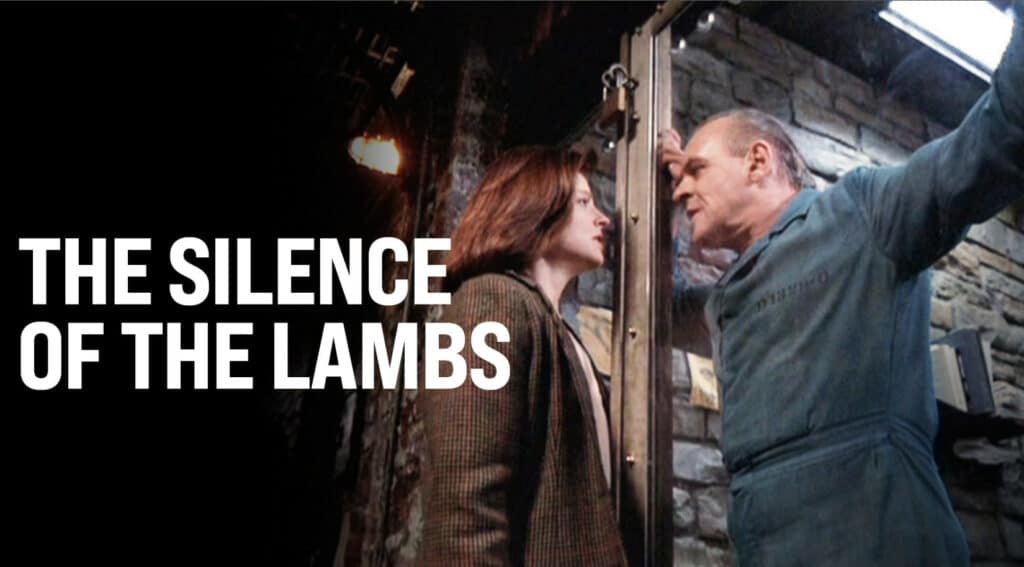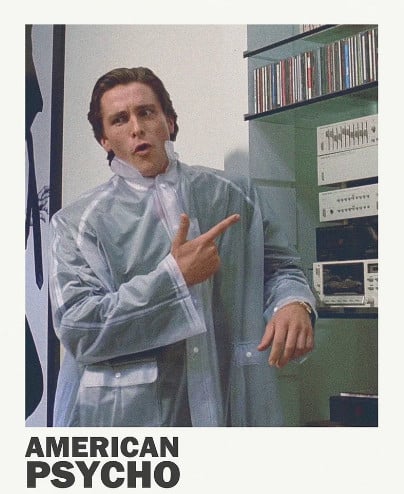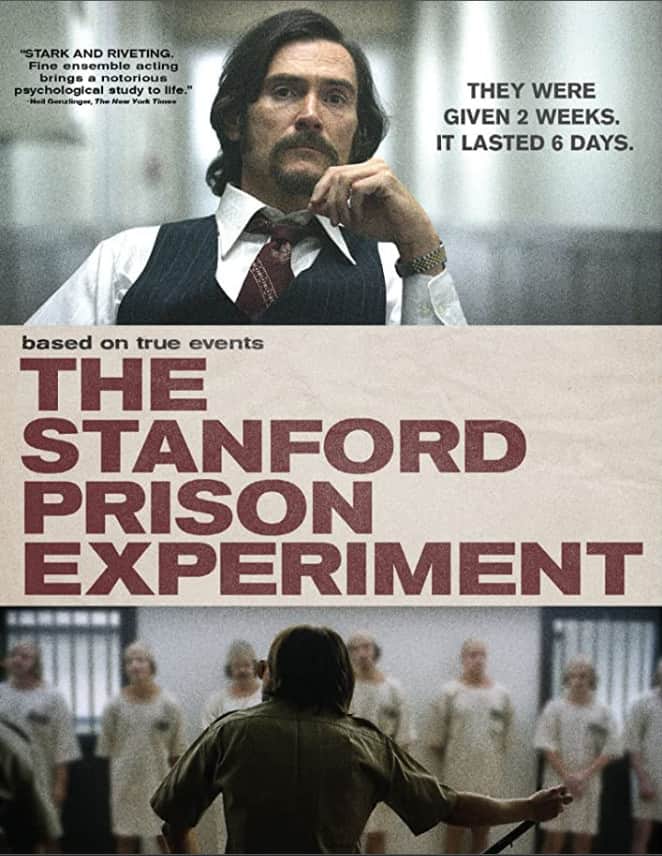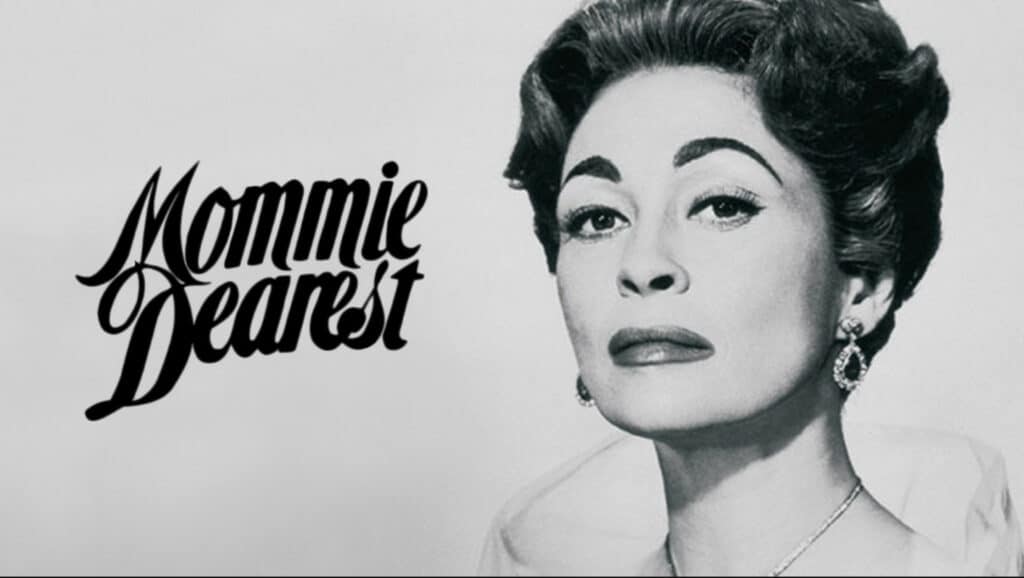The Importance of Understanding NPD in Movies
Movies are not just a source of entertainment; they can also be a powerful tool for education. By exploring psychological disorders such as Narcissistic Personality Disorder (NPD) through movies, we gain an understanding of how these conditions can impact individuals and society as a whole. It is essential to understand the characteristics of NPD, as it is estimated that up to 6% of the general population may suffer from it, according to the Diagnostic and Statistical Manual of Mental Disorders, Fifth Edition (DSM-5).
NPD is a mental health condition that affects a person’s sense of self-importance and grandiosity. People with NPD exhibit an excessive need for admiration and lack empathy towards others.
They often have fantasies about their success, beauty or power. NPD is considered part of the cluster B personality disorders alongside Antisocial Personality Disorder (ASD), Borderline Personality Disorder (BPD) and Histrionic Personality Disorder (HPD).
By examining films that deal with NPD, individuals can develop empathy towards those who suffer from this disorder. People with NPD often engage in mind games with other characters in the film; thus, depicting their behavior on screen helps us identify these traits in real life.
The Betty Broderick Story: A True Story on NPD
One real-life example that shows how dangerous this disorder can be is The Betty Broderick Story. The movie portrays the true story of Betty Broderick played by Meredith Baxter who ultimately kills her ex-husband Dan Broderick played by Stephen Collins after he leaves her for his much younger assistant Linda Kolkena played by Michelle Johnson. Betty suffers from NPD and cannot tolerate Dan’s decision to leave her after all she had done for him in his career.
The Betty Broderick Story is a powerful representation of how NPD can turn into an obsession, leading to dire consequences. The film focuses on the psychological trauma and emotional manipulation that Dan Broderick had to suffer from Betty because of her condition.
Why Movies About this Topic Are Important
Movies about Narcissistic Personality Disorder are an interesting subject because they allow us to explore the mindset and behaviors of individuals with this mental disorder. Such movies give us insight into how someone with NPD might behave in different situations, both at home and in society. It’s fascinating to watch well-written characters who display narcissistic traits navigate their entire life while trying to maintain their image or gain power.
These movies also help people understand narcissism better by showing how it can present itself in different forms such as charming or calculated behavior that makes it hard for outsiders to see the manipulation happening inside – Daniel Plainview in There Will Be Blood or Oskar Schindler in Schindler’s List are good examples. Additionally, movies about narcissism can also serve as cautionary tales, alerting viewers about the dangers of getting too close to a person who displays these traits.
For example, American Psycho shows Christian Bale’s character as he spirals out of control due to his narcissism but also highlights the harm he causes around him due to his mental disorder. Movies about Narcissistic Personality Disorder can be entertaining in their own right.
Characters such as Jack Nicholson’s portrayal of Jack Torrance in The Shining or Faye Dunaway’s portrayal of Joan Crawford in Mommie Dearest give us a glimpse of how narcissistic traits can drive people to extremes. Overall, such movies have the potential to be both thought-provoking and entertaining.
Movies about Narcissistic Personality Disorder are essential because they help us understand this personality trait better. They show us the different ways it can present itself and how it affects those around people who suffer from this mental disorder.
They also serve as cautionary tales that alert viewers about what to look out for when getting too close to someone with narcissistic traits. So, if you’re in the mood for a horror film or a character-driven drama, try exploring some movies about NPD- you might find yourself surprised by how much you learn!
The Best Movies that Depict NPD
Several movies depict NPD as a central theme; some are psychological thrillers such as Black Swan (2010) starring Natalie Portman, where she portrays a ballerina suffering from obsessive-compulsive disorder and displaying narcissistic tendencies. Other movies like American Psycho (2000) starring Christian Bale, Gone Girl (2014) starring Rosamund Pike and The Social Network (2010) starring Jesse Eisenberg delve into the darker side of NPD through their characters’ portrayal. The movie American Psycho directed by Mary Harron is based on the novel by Bret Easton Ellis.
It follows Patrick Bateman played by Christian Bale as he spirals out of control with his obsession for power, status and material possessions, leading him to commit violent crimes. Ingrid Bergman won her first Academy Award for Best Actress in Gaslight (1944), which tells the story of Paula Alquist Anton played by Ingrid Bergman who suffers from gaslighting by her husband Gregory Anton played by Charles Boyer.
Exploring mental health disorders such as NPD through movies can help individuals understand how these conditions manifest themselves in real life. While some may argue that depictions of psychological disorders in movies are highly dramatized or inaccurate, it is important to remember that films are not meant to be a medical diagnosis but rather an artistic representation of complex human behavior.
Top Movies about NPD
Mainstream Movies
The Silence of the Lambs (1991)

The movie “The Silence of the Lambs” stars Jodie Foster as Clarice Starling and Anthony Hopkins as Dr. Hannibal Lecter. While the primary focus of the film is not explicitly on narcissism, Dr. Hannibal Lecter’s character does exhibit certain narcissistic traits that contribute to the story’s psychological dynamics.
It is important to note that “The Silence of the Lambs” explores various psychological themes beyond narcissism, including psychopathy, manipulation, and the nature of evil. While Dr. Hannibal Lecter’s character exhibits narcissistic traits, the film’s narrative extends beyond this aspect to delve into a broader exploration of psychological and criminal dynamics.
American Psycho (2000)

American Psycho is a classic in its own right, and for good reason. The film follows Patrick Bateman, a wealthy investment banker who has an obsession with material possessions and his physical appearance. The movie depicts NPD in a satirical way, where the audience is forced to question whether or not his behavior is real or just an extension of the absurd world he lives in.
As viewers watch Bateman’s descent into madness, it becomes clear that he’s suffering from more than just an obsession with status symbols – it’s a full-blown narcissistic personality disorder. One of the most interesting aspects of American Psycho is how it examines how easily society can become enamored with those who possess wealth and power.
Bateman is able to get away with his vices because he’s rich, handsome, and powerful. His NPD only amplifies these traits and his violent tendencies.
The Social Network (2010)

The Social Network follows Mark Zuckerberg as he creates Facebook, one of the most popular social media platforms on the planet. Throughout the movie, Zuckerberg exhibits many of the classic traits associated with NPD – he’s arrogant, entitled, self-absorbed to name a few.
What makes The Social Network so fascinating is how its portrayal of Zuckerberg’s narcissism compares to real-life accounts we have seen in interviews and news articles since Facebook first launched. While some may argue that Jesse Eisenberg’s portrayal was somewhat exaggerated from reality; there are clear markers that show a sense of entitlement as well as difficulties relating to others which are common among those affected by NPD.
The Talented Mr. Ripley (1999)

The Talented Mr. Ripley tells the story of Tom Ripley, played brilliantly by Matt Damon, who becomes obsessed with a wealthy man named Dickie Greenleaf, played by Jude Law. Tom is a true narcissist who will stop at nothing to get what he wants and become part of Dickie’s elite social circle.
Damon’s performance as Tom Ripley showcases just how convincing and manipulative true narcissists can be. He lies effortlessly to everyone around him; he changes his persona regularly to fit whatever situation he finds himself in; he tries to erase anyone or anything that threatens his sense of self-importance – all while maintaining an outward facade that appears charming and friendly.
American Beauty (2000)

American Beauty, starring Kevin Spacey and Anne Hathaway explores the consequences and emptiness that can result from narcissistic behaviors and societal values. It sheds light on the detrimental effects of self-absorption, materialism, and the neglect of genuine human connection. The characters’ journeys illustrate the destructive nature of narcissism and the potential for personal growth and change when confronted with the consequences of their actions.
Gone Girl (2014)

Gone Girl tells the story of Amy Dunne who goes missing on her fifth wedding anniversary. The movie gradually reveals the truth about her disappearance and the extent of her NPD.
Amy is an incredibly manipulative character who uses her charm, wit, and beauty to get what she wants. What sets Gone Girl apart from other movies that deal with psychological disorders is how it highlights the effects of NPD on others.
In this case, we see how Amy’s behavior affects those around her – particularly those closest to her like her husband Nick. Her actions have far-reaching consequences, resulting in psychological damage to all involved.
Black Swan (2010)

Black Swan is a psychological thriller about Nina Sayers (Natalie Portman), a fragile ballerina who becomes obsessed with getting the lead role in her company’s production of “Swan Lake.” As the pressure mounts, Nina’s already-fragile sense of self gets distorted, and we see her descend into madness. Portman’s performance as Nina Sayers showcases just how fragile narcissists can be under pressure. Her obsessive-compulsive disorder mixed with her ambition leads to an incredibly dark side emerging.
Watching Portman as she transforms into the Black Swan is nothing short of mesmerizing. Overall, these movies offer an insightful look at what it means to be a true narcissist or exhibit narcissistic traits.
They are not only entertaining but also reveal some uncomfortable truths about humanity. These films show just how far some people will go to maintain their sense of self-importance – even if it means destroying those around them in the process.
Indie Films
Thoroughbreds (2017)

Thoroughbreds follows two young women who are both struggling with NPD. The movie explores how their friendship is impacted by their shared disorder as well as how they develop a sort of symbiotic codependency based on their shared traits.
What’s interesting about Thoroughbreds is its examination of two women who are affected by NPD – a disorder that traditionally has been viewed as a male-centric issue. As viewers watch these characters navigate their relationships with one another and those around them, it becomes clear that these traits are not limited to any particular gender or demographic.
The Art of Self Defense (2019)

The Art of Self Defense follows Casey Davies, played by Jesse Eisenberg, after he enrolls in a karate class following an attack. Throughout the movie, we see classic markers of NPD in Casey’s character; he’s socially awkward and seeking validation from others while still feeling superior to them.
One thing that makes The Art of Self Defense stand out among other movies dealing with psychological disorders is its examination of how someone can change over time when put into new circumstances. Casey starts off as meek and timid but eventually transforms into something else entirely due to his involvement in martial arts.
The Stanford Prison Experiment (2015)

The Stanford Prison Experiment is based on the infamous experiment in the 1970s. It explores how power dynamics and group settings can lead to narcissistic behavior and even abuse. The movie shows how easy it is for individuals to become corrupted when given authority without proper oversight.
The Stanford Prison Experiment is an excellent example of how movies can be used to explore real-world issues like NPD and its effects on society as a whole. By examining this experiment, we’re able to see how quickly people can become consumed with their own perceived power – something that we have seen all too often in the real world.
Lesser-Known Movies about NPD
Obscure Films from Around the World
The Importance of Exploring Lesser-Known Films That Tackle Narcissistic Personality Disorder
While mainstream films that delve into Narcissistic Personality Disorder (NPD) like American Psycho and The Social Network are great, it’s important to also acknowledge lesser-known movies that explore the subject matter. These films may not have had the same amount of hype, but they offer a fresh perspective on this interesting subject. Let’s take a look at two such movies – La Haine and The Skin I Live In – that do an exceptional job in exploring NPD.
La Haine (1995)

A Powerful Portrayal of Narcissism Without Being Explicitly Stated
La Haine is a French film that follows three young men from different ethnic backgrounds living in Paris, as they navigate through their troubled lives. One of the characters – Vinz – is a prime example of someone with NPD. He exhibits many traits like lack of empathy, grandiosity, and feeling entitled to special treatment.
What makes this portrayal unique is that Vinz’s narcissism isn’t explicitly stated in dialogue or plot. It’s portrayed subtly through his actions and behaviors.
This requires viewers to pay attention to non-verbal cues and it reflects society’s acceptance or ignorance towards such personalities. The filmmakers demonstrate how those with NPD don’t always realize they have it because society enables them instead of holding them accountable for their behavior.
The Skin I Live In(2011)

A Provocative Tale About Psychological Damage Caused By A Narcissistic Abuser
The Skin I Live In is a Spanish psychological thriller about Dr. Robert Ledgard who takes revenge on the man responsible for his daughter’s death. But revenge isn’t the only thing driving him – he also has NPD.
Ledgard is a complex character that demonstrates how someone with NPD can cause psychological damage to others, especially those close to them. He creates a perfect world around himself and feels no remorse for his actions.
The movie delves deep into Ledgard’s psyche, showing how his narcissism stems from his troubled relationship with his narcissistic father. The Skin I Live In gives viewers an insight into the mind games that people with NPD often play and how their sense of self can be so warped that they don’t see themselves as the problem.
Mommie Dearest (1981): Living with a True Narcissist

Mommie Dearest is a biographical drama film adapted from Christina Crawford’s memoir, which recounts her tumultuous relationship with her narcissistic mother, the famous Hollywood actress Joan Crawford. The movie portrays Joan as an overbearing and demanding figure with little regard for her daughter’s feelings or well-being. The character exhibits several narcissistic traits, including a grandiose sense of self-importance, lack of empathy, and excessive need for admiration.
Throughout the film, we see Joan’s abuse of Christina escalate to absurd levels as she becomes increasingly obsessed with maintaining her public image. From forcing Christina to stand in scalding hot water to slapping her in front of guests at a party, Mommie Dearest is an unsettling portrayal of what it’s like to live under the thumb of a true narcissist.
The Neon Demon (2016): A Dark and Twisted Tale

Set in the world of high fashion modeling in Los Angeles, The Neon Demon is a visually stunning horror movie that explores themes of beauty, obsession, and narcissism. The lead character Jesse (played by Elle Fanning) is an aspiring model who quickly rises to fame thanks to her striking looks. However, as she becomes more successful and increasingly obsessed with maintaining her image, Jesse begins to exhibit several narcissistic traits.
Jesse’s narcissism grows more pronounced throughout the film until it reaches a disturbing climax that leaves viewers questioning the nature of beauty and our society’s obsession with youthfulness. While not explicitly about NPD per se, The Neon Demon is a fascinating exploration of how fragile narcissists can be driven to extreme lengths when their sense of self-worth is threatened.
The Perfection (2018): Unleashing the Monster Within

The Perfection is a psychological thriller that centers around two musicians, Charlotte and Lizzie, who share a dark and twisted history. Without giving too much away, the movie deals with themes of betrayal, manipulation, and abuse.
Throughout the film, we see Charlotte (played by Allison Williams) reveal herself to be a highly manipulative and deceitful character with several narcissistic traits. In particular, her treatment of Lizzie (Charlotte Willmore-Smith) is deeply troubling as she uses her power over her to feed her own ego.
The movie is an intense exploration of narcissistic abuse and how it can manifest in even the most seemingly benign relationships. Overall, The Perfection is an excellent study of how individuals with NPD can be driven to unleash their inner monster when they feel threatened or otherwise challenged.
Conclusion
Why We Should Pay More Attention To Lesser-Known Films That Tackle Narcissistic Personality Disorder
These movies show that while it’s easy to label someone as just “narcissistic,” it’s important to understand where those behaviors come from in order to make sense of them. Lesser-known movies like La Haine and The Skin I Live In offer unique perspectives on how NPD can affect individuals differently based on their upbringing and past experiences. It’s crucial not to ignore these films as they bring light to an important issue that affects people in real life.
By watching such movies, we can gain insights into what it means to live with NPD or experience narcissistic abuse firsthand. We should celebrate filmmakers who are brave enough to tackle such difficult topics through art, even if their work isn’t always lauded by mainstream audiences or critics.
Understanding Narcissism Through Cinema
While these movies may not be for everyone due to their dark themes and subject matter, they offer a unique perspective on what it’s like to live with or suffer from narcissistic personality disorder. Whether it’s through exploring the life of a true narcissist like Joan Crawford in Mommie Dearest or examining how someone’s sense of self-worth can spiral out of control in The Neon Demon or The Perfection, such movies give us insight into this complex personality trait that affects millions worldwide.
Ultimately, these films allow us to better understand empathize with those who struggle with NPD whether as a result of bipolar disorder or borderline personality disorder. They also give us insight into how we can recognize the signs of these harmful tendencies in ourselves or others so that we might take steps towards healing and regaining our sense of empathy for each other as human beings – even if only through fictional stories brought to life by talented actors such as Natalie Portman or Julia Roberts under direction by cinematic geniuses like Woody Allen or Daniel Day-Lewis.




